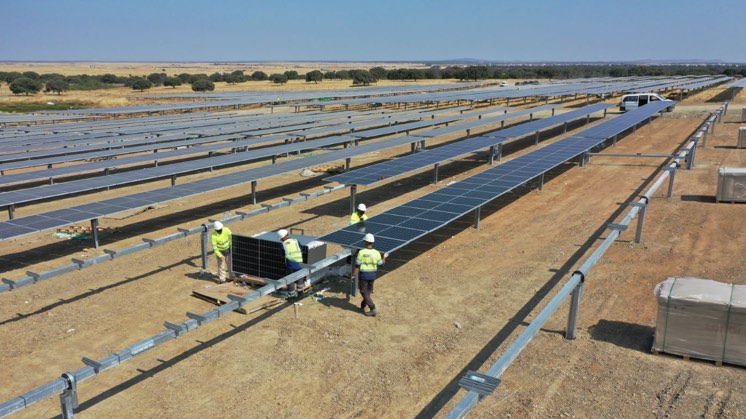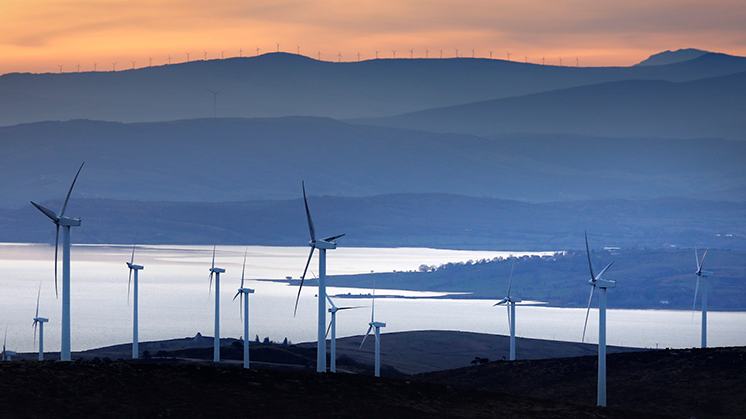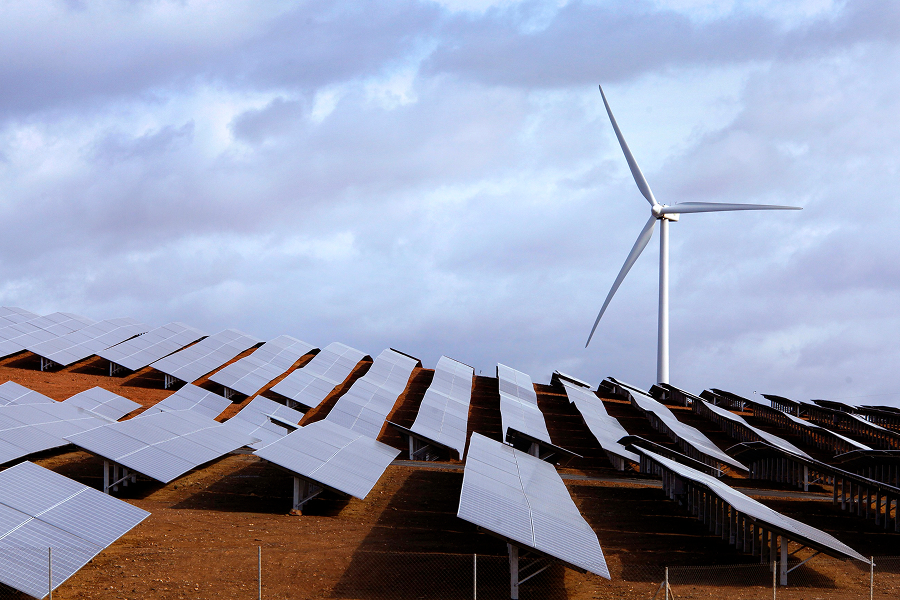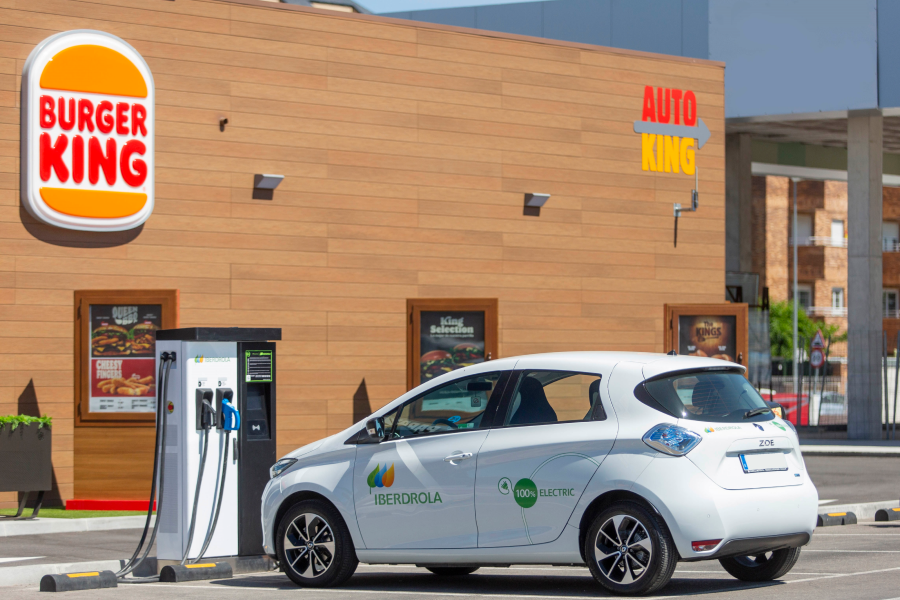PPAS IN SPAIN
Navigating the energy market in Spain: Exploring PPAs from the past to the future
A Power Purchase Agreement (PPA) is a long-term power purchase agreement with agreed terms (term, price, quantity, etc.) between a renewable generator and a consumer that secures the revenue generated and provides the customer with price stability. That way, the buyer comes ever closer to meeting its sustainability targets and the seller earns revenue to support its renewable installations’ financing and operation.

Past, present and future of PPAs in the Spanish energy market
Below, we’ll explain how a PPA works, the types of agreements and the benefits they have.
How does a renewable PPA work?
There are several elements governing PPAs:
- Parties involved. The parties involved are the energy seller, owner of an power generation plant and the buyer, an entity in need of energy and with decarbonisation objectives.
- Duration. The length of the agreement will depend, among other factors, on the installation’s useful life, the country-specific market trends, and the milestones in the buyer's decarbonisation targets.
- Purchase price. A megawatt-hour (MWh) price of electricity sold. This price can be fixed or adjustable, according to a market-dependent index.
- Guarantees of origin. Guarantees of origin certifying the renewable origin of the energy are usually included in the PPA.
Types of PPAs in Spain
PPA Offsite
PPA Onsite
There are different types of PPAs depending on the point of energy supply:
- Onsite PPA. In this type of agreement, the power generation facility is placed on or near the buyer's premises and connected to its own grid.
- Offsite PPA. In this type, the power generation facility is located at a site off the buyer's premises. It is physically connected to the electricity grid, not to the installation.
In addition, depending on whether there is physical delivery of energy, PPAs can be:
- Physical PPA. The developer sells the renewable energy to an end customer through a trader, which supplies both the energy from the farm and the additional energy required to meet the customer's consumption.
- Virtual PPA. The customer closes the energy price directly with a developer and buys its electricity from the supplier of its choice.
PPAs can also be classified based on the generation profile delivered:
- As generated PPA. The customer consumes the gross generation coming out of the plant. It is the most in-demand product.
- Baseload PPA. The renewable developer is responsible for converting the gross generation of the park into a baseload.
Benefits of PPAs in Spain
The advantages for the buyer include:
They secure renewable energy supply, which helps buyers meet their sustainability and carbon reduction targets.
They mitigate the risk of electricity market price volatility, as the cost of energy procurement is fixed at a competitive and stable price over the long term.
Some of the advantages for the vendor include:
Provide stable and predictable income to reduce economic risks. By setting a fixed electricity sale price, the seller is protected from the volatility of wholesale energy markets. Steady revenue streams ensure a reasonable minimum return on investment.
They make it easier to obtain financing to build power generation plants. This helps them make the final investment decision.
They establish long-term customer relationships and new opportunities for partnerships.
Stages to roll out a PPA in Spain
Negotiating and signing a PPA goes through the following stages:
- Identifying the parties: The power purchaser is identified.
- Structuring the product: Aspects such as the start date and duration of the agreement, the amount of energy and associated guarantees of origin, the price and any critical clauses are agreed in a Head of Terms (HoT).
- Drafting and negotiation the agreement: All obligations and rights of both parties are made explicit in the agreement.
- Signing the agreement: The parties sign the contract and commit to honouring it.
- Implementing and monitoring over the life of the PPA to meet all agreed obligations.
Main PPAs signed in España
Iberdrola Group, of which Iberdrola España forms part, has extensive experience in PPAs and has renewed its leadership position in the European PPA market p for the second consecutive year, according to the Renewable Market Outlook 2025. The company has contracted more than 1250 MW in 2024, a 38% increase compared to 2023.
Some examples of PPAs signed in Spain are:
PPA between Iberdrola España and Bayer
With this PPA, Iberdrola España will supply energy to 11 facilities in Spain and Portugal of PepsiCo, the multinational food and beverage company. The renewable energy comes from the Francisco Pizarro photovoltaic plant, which prevents the emission of over 150,000 tonnes of CO2 into the atmosphere each year.
PPA between Iberdrola España and Amazon
Iberdrola España and Amazon have expanded their strategic alliance signed in 2022 for renewable energy PPAs and cloud services. The energy purchase agreements include Amazon's first PPA in Portugal for 219 MW from the Tâmega Wind Complex, the largest wind farm in Portugal. Additionally, this agreement includes two new commercial-scale power purchase agreements in Spain, totalling 257 MW of solar and wind energy from the Ciudad Rodrigo (Salamanca) and Valdemoro (Burgos) plants.
PPA between Iberdrola España and Alcampo
With this agreement, Iberdrola España will supply 3,740 GWh of electricity to Alcampo's centres, equivalent to the annual consumption of 62,000 families over 11 years. The energy mainly comes from the Velilla photovoltaic plant in Palencia and Tagus I-IV, located in Alcántara, Cáceres.
PPA between Iberdrola España and PepsiCo
With this PPA, Iberdrola España will supply energy to 11 facilities in Spain and Portugal of PepsiCo, the multinational food and beverage company. The renewable energy comes from the Francisco Pizarro photovoltaic plant, which prevents the emission of over 150,000 tonnes of CO2 into the atmosphere each year.
PPA between Iberdrola España and Danone
The agreement reached between Iberdrola España and Danone España provides green electricity to all Danone's production plants and springs in Spain, located in Asturias, Barcelona, Girona, Guadalajara, Granada, Madrid and Valencia, as well as to its logistics centres and offices. With this PPA, Iberdrola España will supply clean energy to Danone Spain's 29 supply points for 10 years, starting in April 2022. The total of 73 GWh/year comes from the Francisco Pizarro project.
Other PPAs signed by Iberdrola España

PPA between Iberdrola España and Vodafone

PPA between Iberdrola España and HEINEKEN
This agreement helped buitd the Andévalo photovoltaic plant to supply green electricity to Heineken’s factories and offices.

PPA between Iberdrola España and Euskaltel

PPA between Iberdrola España and Bayer
Related information





